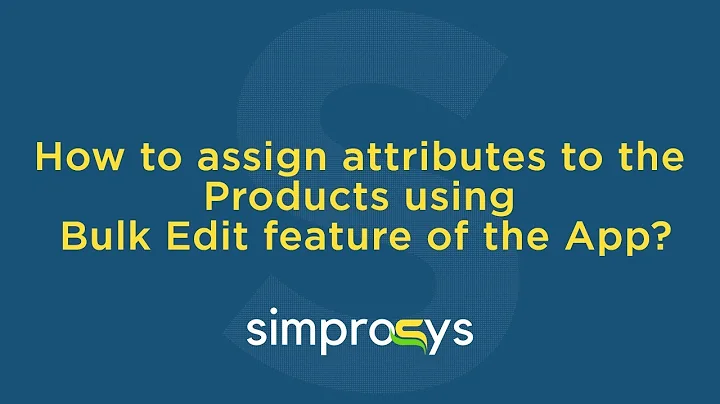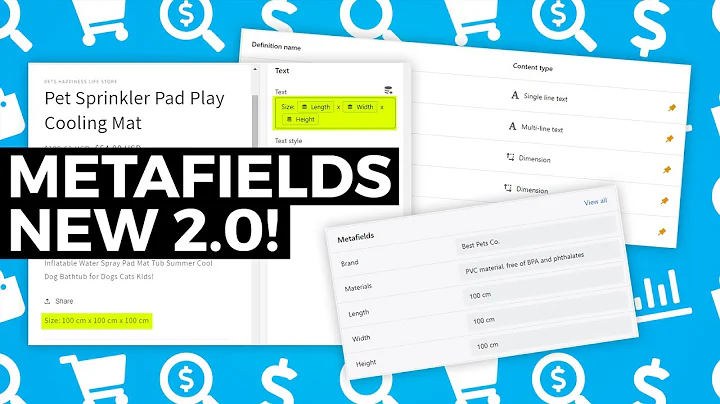Top No Code Builders for 2023
Table of Contents:
- Introduction
- What are no code website builders?
- Anima: Design with Figma or Adobe XD
- Framer: Fast web design with integrated publishing
- Super.so: Turn Notion pages into websites
- Glide and Softr: Website building with spreadsheets
- Readymag: No-code tool for designers
- Editor X: Wix's solution for professional website building
- Bubble: No-code builder with custom logic
- Webflow: The best no-code website builder
Introduction
In this article, we will explore the world of no code website builders. These tools have gained popularity for their ability to create websites without the need for coding knowledge. We will discuss the advantages and disadvantages of different no code builders, highlighting their unique features and use cases. Whether you are a designer, developer, or entrepreneur, these website builders offer a range of options to help you bring your ideas to life.
What are no code website builders?
No code website builders are platforms that enable users to create websites without writing any code. They provide intuitive interfaces and pre-built components that allow users to drag and drop elements to create their desired web pages. These tools often integrate with popular design software like Figma, Sketch, or Adobe XD, making it easy to translate designs into functional websites.
Anima: Design with Figma or Adobe XD
Anima stands out as one of the most prominent website builders in the market. It allows users to design directly in Figma or Adobe XD and then seamlessly publish their designs as code. This eliminates the need to learn new tools and empowers designers to create websites using familiar interfaces. However, while Anima excels in simplicity and ease of use, it may have limitations when it comes to complex designs and animations.
Framer: Fast web design with integrated publishing
Framer is often hailed as the "webflow killer" due to its ability to build websites quickly. It offers a streamlined experience by combining design and publishing functionalities into a single software. Like Anima, Framer also works with Figma, enabling designers to leverage their existing designs. Framer's speed, responsiveness, and advanced features, such as its content management system, make it a strong contender in the no code website builder market. However, it is important to note that Framer may have limitations when it comes to complex designs and animations.
Super.so: Turn Notion pages into websites
Super.so is a unique website builder that caters specifically to Notion users. It allows users to transform their Notion pages into fully functional websites without the need to learn new design software. Super.so simplifies the process of turning information from Notion into a cohesive website layout. Although it may have limitations in terms of design flexibility, it offers a seamless transition from Notion to a live website.
Glide and Softr: Website building with spreadsheets
Glide and Softr are no code builders that leverage the power of spreadsheets, such as Google Sheets or Excel, to create websites. These tools allow users to organize data on a spreadsheet and then generate a website from that data. Glide offers a range of applications, from simple forms to more complex databases, while Softr focuses on building web apps using spreadsheet data. These tools are ideal for creating internal tools, client portals, marketplaces, directories, and other websites that rely heavily on data organization. However, the design options may be more limited compared to other website builders.
Readymag: No-code tool for designers
Readymag is a no code website builder designed specifically for designers. It offers a range of templates and customization options tailored to showcase portfolio websites. While Readymag simplifies the process of creating visually appealing websites, it may lack the robustness and versatility of other website builders. Designers can choose from various font options and layouts, but advanced features and complex website structures may not be as readily available.
Editor X: Wix's solution for professional website building
Editor X is Wix's answer to professional website building. With its own CMS and custom code capabilities, Editor X aims to compete with platforms like Webflow. It offers a range of features and functionalities out of the box, ensuring that users have access to everything they need to build and design their websites. However, some users have reported glitches and performance issues with Editor X, suggesting that it may still be in the early stages of development.
Bubble: No-code builder with custom logic
Bubble is often considered the leading no code website builder due to its extensive capabilities and custom logic options. With Bubble, users can create complex web applications that require user signups, integrations, and more. While Bubble's logic and functionality are highly praised, its design interface may not be as user-friendly as other builders. Users may find the design experience lacking compared to more visually appealing platforms. However, Bubble's strength lies in its ability to create robust web apps without the need for coding knowledge.
Webflow: The best no-code website builder
Webflow is widely regarded as the best all-around no code website builder. Its intuitive dashboard strikes a balance between ease of use and functionality. Webflow offers a range of design options, advanced features, and a thriving community of users and resources. While it does not yet have the same level of custom logic and membership solutions as other platforms, Webflow's versatility and user-friendliness make it the ideal choice for a wide range of projects.
In this article, we have covered some of the most popular and promising no code website builders available. Each tool has its own unique features and advantages, so it's important to consider your specific needs and desired outcomes. Whether you're a designer, developer, or entrepreneur, no code website builders offer a world of possibilities that can bring your ideas to life without the need for coding expertise.
Pros and Cons of No Code Website Builders
No code website builders come with their own set of advantages and disadvantages. Here are some pros and cons to consider when deciding which platform to use:
Pros:
- No coding knowledge required: No code website builders eliminate the need to learn programming languages, allowing anyone to create a website.
- User-friendly interfaces: These platforms offer intuitive drag-and-drop interfaces, making website building accessible to beginners.
- Time-saving: No code builders enable faster website development compared to traditional coding methods.
- Design flexibility: Many tools provide customizable templates and design options, allowing users to create unique and visually appealing websites.
- Integration capabilities: Some builders offer integrations with other platforms and services, making it easy to add functionality to your website.
- Community and support: No code website builders often have active communities and support channels where users can seek guidance and learn from others.
Cons:
- Limited customization: While no code builders offer design flexibility, there may still be limitations in terms of complex customizations.
- Learning curve: While these platforms are user-friendly, mastering all the features and capabilities may require some time and effort.
- Dependence on the platform: Websites built using these tools may rely heavily on the platform's infrastructure, potentially limiting future scalability.
- Lack of custom logic: Some builders may not offer extensive logic capabilities, making it difficult to create highly interactive web applications.
- Performance issues: Depending on the chosen platform, there may be performance issues or glitches that can hinder website functionality.
It's essential to evaluate these pros and cons in relation to your specific project requirements and long-term goals. Consider the features, limitations, and trade-offs of each platform to make an informed decision.
Highlights
- No code website builders allow users to create websites without coding knowledge, making web development accessible to a wider audience.
- Anima, Framer, Super.so, Glide and Softr, Readymag, Editor X, Bubble, and Webflow are popular no code website builders with unique features and use cases.
- These builders offer a balance of design flexibility, ease of use, and functionality, catering to different user preferences and project requirements.
- Pros of no code builders include no coding knowledge required, user-friendly interfaces, time-saving, design flexibility, integration capabilities, and supportive communities.
- Cons include limited customization, learning curve, potential dependence on the platform, lack of custom logic, and possible performance issues.
FAQ
Q: Can I still customize the design of my website with no code website builders?
A: Yes, most no code builders offer customizable templates and design options, allowing you to create a unique look and feel for your website. However, there may be limitations in terms of complex customizations.
Q: Are no code website builders suitable for complex web applications?
A: While no code builders can handle certain levels of complexity, they may not be suitable for highly interactive web applications that require extensive custom logic. In such cases, other development approaches may be more appropriate.
Q: Can I migrate my website to a different platform if I start with a no code builder?
A: It depends on the specific platform and your website's complexity. Some builders allow exporting or migrating website code to different platforms, while others may have limitations. It's important to consider long-term scalability and the potential need for platform transitions when choosing a builder.
Q: Do no code website builders support search engine optimization (SEO)?
A: Yes, most builders offer built-in SEO features or integrations that allow you to optimize your website for search engines. However, the extent and flexibility of these features may vary between platforms, so it's important to review each builder's SEO capabilities.
Q: Can I integrate third-party services or applications with no code website builders?
A: Many no code builders offer integrations with popular third-party services and applications. This allows you to extend your website's functionality by connecting it to other tools, such as payment gateways, analytics platforms, or email marketing services. It's important to check each builder's integrations and ensure compatibility with your desired third-party services.
Q: Are no code website builders suitable for e-commerce websites?
A: Yes, many no code builders offer e-commerce capabilities, allowing you to create online stores with product listings, shopping carts, and payment gateways. However, it's essential to review each builder's e-commerce features, such as inventory management, order fulfillment, and sales tracking, to ensure they meet your specific needs.
Q: Are no code website builders scalable for growing businesses or projects?
A: No code builders vary in terms of scalability. While some platforms can handle the growth of your website or project, others may have limitations that hinder scalability. It's important to choose a builder that aligns with your long-term goals and can accommodate potential future expansions.
Q: Can I export the code of my website from a no code builder?
A: Some no code builders offer the ability to export website code, allowing you to have more control over your website and host it independently. However, not all builders provide this feature, so it's crucial to consider your needs and preferences when selecting a platform.
Q: Are no code website builders suitable for professional web designers or developers?
A: Yes, many professional web designers and developers use no code website builders to streamline their workflow and quickly prototype ideas. These builders offer design flexibility while eliminating the need for manual coding, enabling professionals to focus on the visual and UX aspects of their projects.
Q: Do no code website builders offer support and documentation?
A: Yes, most no code builders provide support resources and documentation, including tutorials, forums, and customer support channels. These resources can assist users in learning the platform, troubleshooting issues, and exploring advanced features.


















